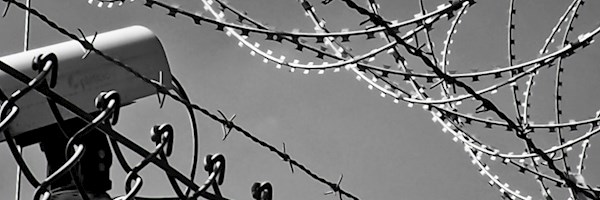Security is one of the main reasons for moving into sectional title property but for the complex to be truly safe, everyone needs to be aware of their responsibilities.
Why do people move into complexes?
One of the strongest reasons for people to move into a sectional-title (ST) complex or development is the desire for a higher level of physical security than you might expect to find in a freestanding suburban house. And yet the residents of ST schemes are often their own worst enemies when it comes to security, says ST expert Mike Spencer of Platinum Global in Bloemfontein.
‘In the buildings we manage, we have seen how residents themselves actually cut the wires to the automated security gate or physically break the control mechanism. We have also seen how people have used stones or rocks to stop a roller-gate from closing all the way just because they’ve left their remote-control upstairs and were too lazy to go back for it before popping out to the shops. Of course, the actual culprit is always “Mr Nobody”, and while our experience shows that tenants are often more casual about security than owners, that is not always the case.’
Indeed, says Berry Everitt, MD of the Chas Everitt International property group, break-ins, burglaries and even robberies can and do occur even in complexes with electrified perimeter walls, intercoms, remote-controlled gates, CCTV and security guards – ‘usually because someone on the “inside” grew complacent or just wasn’t paying enough attention.
Be aware at all times for more security
No matter how good or expensive a security installation may be, it can never replace common sense and constant vigilance, he says. ‘Security is a permanent state of mind – or should be – for every resident and worker in an ST community, not just for a few trustees or the guards at the gate. For example, gardeners or cleaners should be informed about what to do and whom to report to if they see someone strange wandering around the complex. And security guards simply must not let anyone in who is not carrying positive proof of identity or who is not expected and checked in by an owner. Many an intruder has gained access to a complex by falsely claiming to be a telephone technician, TV or appliance repairman, meter reader, plumber, electrician or builder – complete with ladders and tools to aid their real intentions.’
On the other hand, says Spencer, ST trustees and managing agents should view the constant oversight and improvement of security as one of their most important functions. ‘In most of our buildings, we have been able to get the rules updated to include a fine system for breach of the rules, with security being one of the main breaches for which a fine can be imposed. And although we very seldom have to impose a fine, the threat definitely does help to encourage people to abide by the rules. ‘In addition, any tenant who does not abide by the security arrangements of a particular ST scheme should be in no doubt that the managing agents will ask the owner to make alternative arrangements. And owners who are casual about security should be sanctioned by the body corporate in the strongest terms possible within the rules of the scheme.’
Security maintenance is a must
Trustees and managing agents, he says, should also not be lulled into a false sense of security once certain equipment has been installed. ‘Electric fences need to be checked regularly to make sure that trees and weeds are not shorting out the wires, and trees close to a perimeter wall need to be checked to see that they do not provide easy access routes for burglars.
‘Vehicle gates can also be a real weak spot, with strangers able to just walk in behind cars and the body corporate should really consider installing security cameras at such high-risk points.’
Remotes and access codes in complexes
Everitt says ST trustees need to keep ‘very tight control’ over the issuing of remote controls and gate access cards, and immediately cancel any that are lost or stolen. ‘It is also recommended that in larger complexes, and especially those where many units are tenanted, the access codes themselves are changed at least every six months to prevent people who should not have access being able to use old access codes, remotes or cards to get in.’
He says the body corporate may also wish to consider relatively simple improvements to common property such as better garden, passage or garage lighting, as well-lit properties are much less ‘attractive’ to criminals.
‘And it may decide to employ security staff to man the doors or gates – but if they do, it really is better to budget for the services of a professional security company using trained and qualified personnel – even if it does cost more – than to try to set up their own system. For more information about services available, they should consult sasecurity.co.za.’
Article republished with permission of The Creative Group
